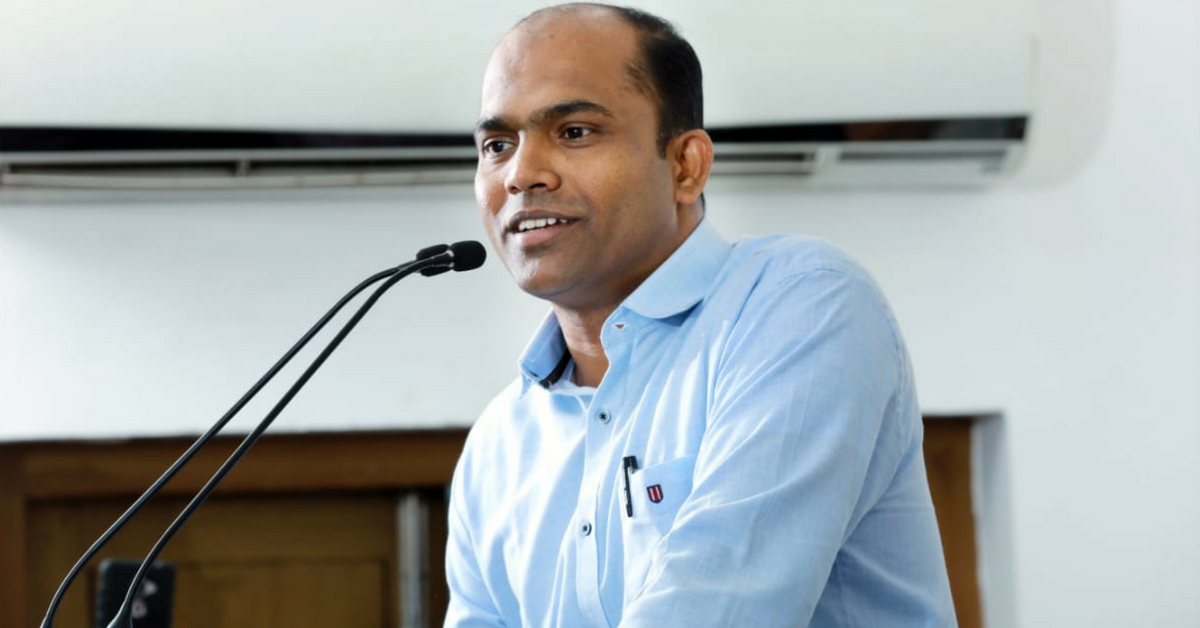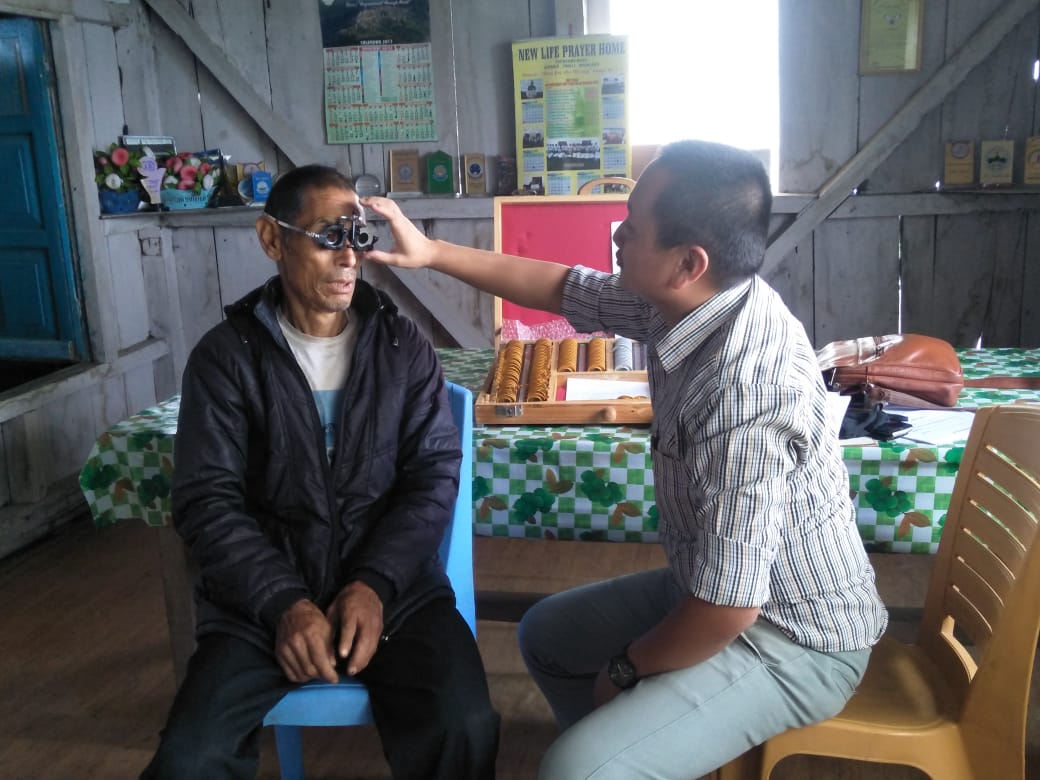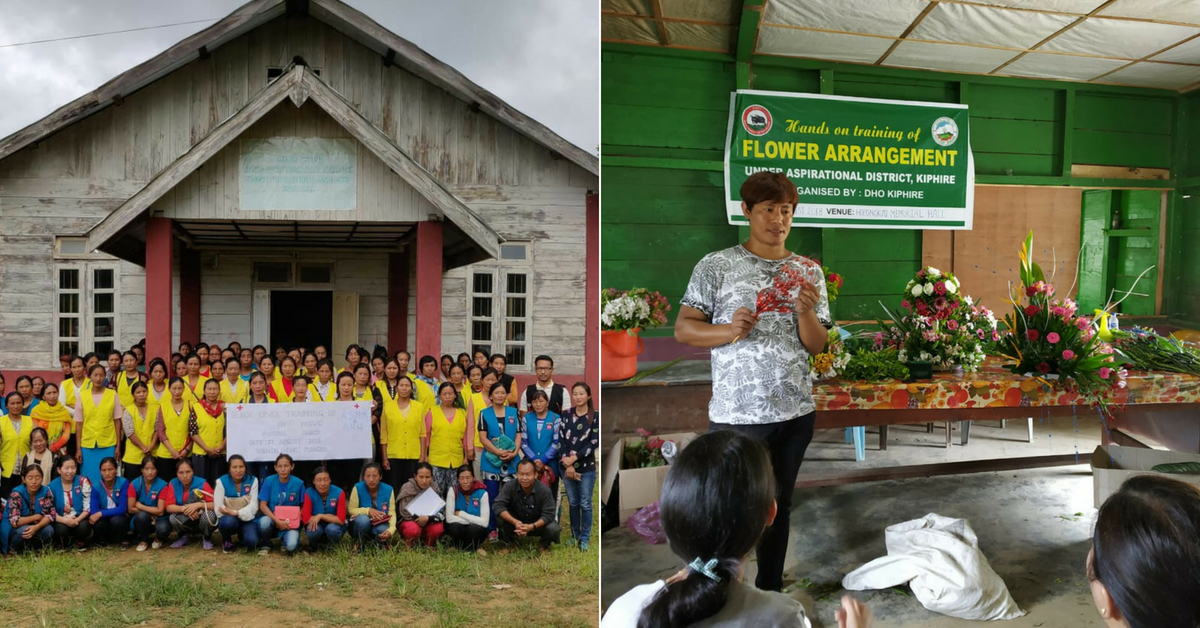From Kerala Orphanage to Cracking UPSC: The Incredible Story of IAS Mohammad Ali Shihab!
From teaching at a government school, working as a peon in the Kerala Water Authority, and a clerk at a Gram Panchayat, he finally cracked the most coveted Union Public Service Commission exam.

He was born in the remote village of Edavannappara near Kondotty in Kerala’s Malappuram district. Growing up as a carefree child, he would often find innovative ways to skip school. His sole dream in life back then was to own a small shop, like most rural boys in the 80s.
The major reason for skipping school often was his need to help his asthmatic father at their makeshift pan shop which also sold bamboo baskets.
Tragedy befell the family when he was 11. His father, Koroth Ali, passed away, leaving his mother, Fathima, alone to fend for five kids. The financial crisis pushed her to send one son and two of her daughters to an orphanage in Kozhikode.
He spent the next ten years at the orphanage. From teaching at a government school, working as a peon in the Kerala Water Authority, and a clerk at a Gram Panchayat, he finally cracked the most coveted Union Public Service Commission exam.
This is the incredible story of IAS officer Mohammad Ali Shihab.

An officer of the 2011 batch, he is currently serving as the Deputy Commissioner of one of the remotest districts in India — Kiphire, in Nagaland. Even as he speaks to me over the phone, he reveals how the district is reeling under the consequences of multiple landslides. Necessities are being airdropped, after the only route that these materials could come from was blocked.
In an exclusive interview with The Better India, he reveals how his life came full circle, from growing up in an orphanage to tending to a remote district in India.
When he shifted to the orphanage, Shihab’s life got the much-needed discipline it lacked. Resources and opportunities were limited, but the challenge lay in being content, he says. He steadily improved in academics and passed his SSLC with good marks. He then joined a pre-degree teacher training course.
Back in the orphanage, he would eat dinner at 8 pm and wake up at midnight to study. Under the dim light of a torch under his bed sheet, he would diligently study and try not to wake up his friends sleeping on nearby beds in the dorm.
When he wanted to pursue his graduation from a regular college and returned to his village to speak to his family, he did not receive the support he required, due to financial difficulties. And so, he started working as a primary school teacher.
But even at the time, with his limited qualifications, he managed to clear over 21 State-level Public Service Commission exams.
While working as a peon for the Kerala Water Authority, he applied for distance education to Calicut University for BA in History. For three years, he worked in smaller capacities in different government departments and continued his education. He was 27, by the time he graduated.
When I ask him why he opted for the civil services, he says, he wasn’t sure what the services meant and entailed until he started his preparation.
He shares, “My brother, who knew I had cleared the State PSCs, would tell me to try for the civil services. Honestly, I didn’t know what I was doing until I jumped right into it.”
When a local daily covered his story of clearing the PSCs and asked him what his ambition was, he had no answer. When they asked him the question repeatedly, he said he wanted to pursue the civil services. The story came to the attention of the authorities of his orphanage who declared that they would support him financially. It was only a matter of time until the New Delhi-based Zakat Foundation conducted entrance exams in Kerala to select students to avail of their free coaching services. Shihab cleared the exam and moved to New Delhi for the same.
He had already attempted the prelims in 2007 and 2008, and was approaching his 30s. He knew he didn’t have many attempts left. Married at the time, with a nine-month-old, he juggled between exam preparation and domestic duties.
He wrote the mains in his mother tongue, Malayalam, and appeared for the interview with the help of a translator. Riding on the back of his efforts and the support of his well-wishers, he cracked the civil services in 2011 in his third attempt.
“My preparation at Zakat as well as later in the Lal Bahadur Shastri National Academy of Administration helped me learn the nitty-gritties of the service. We even trained to learn the language of our cadre, which in my case, was Nagaland,” he adds.
The officer claims that he can speak Nagamese as fluently as his mother tongue. While he first served as the Assistant Commissioner of Dimapur district, he also served as the sub-divisional magistrate of Kohima district; Additional Deputy Commissioner of Mon district, bordering Myanmar; Joint Secretary in the Power Department of the Nagaland Secretariat and Project Director IFAD (International Fund for Agricultural Development).
He was transferred to Kiphire in November 2017, which was declared one of the 117 aspirational districts in the country by the Prime Minister and NITI Aayog.

“It is one of the remotest and most inaccessible districts in India. Travelling to Dimapur requires travelling in one’s vehicle through the hilly terrain for 12-15 hours. Kiphire is the only district from Nagaland which finds a place in this aspirational districts list.”
Under his leadership, the district is now taking several steps to move towards development.
An agrarian economy, the district was formed in 2004 and is inhabited by several tribes. It is prone to law-and-order issues and also shares international borders with Myanmar. But the major challenge is the socio-economic backwardness, says the DC.
Read More: Exclusive: This IPS Officer’s Brilliant Idea Is Helping School Kids Fight Sexual Abuse!
The six areas he is now focussing on include education, agriculture, health, skill development, basic infrastructure, and banking.

“The two main items that the tribals grow are Kolar rajma and maize which have a huge market outside. But sending these from Kiphire to Dimapur is an expensive affair. The villagers sell the two items to get rice in barter, which is a staple. We are now working towards helping them get prices for their crops, and doubling their incomes. The road ahead is difficult, but we will make it through.”
The success of his approach reflects in how he was able to conduct two elections peacefully. His intervention of visiting local churches, speaking to tribe leaders and NGOs helped mend chords between several tribes. The district leaders have taken the declaration of Kiphire being termed aspirational by the centre in a positive light and are now joining hands to uplifting it.
“I was an orphan, and the district which I am tending to is like an orphanage too. My life was cut off at 11 after my father’s death and my district is cut off from the rest of the world. But despite the limited opportunities and resources, the locals here have taught me how everything is an opportunity to celebrate. No wonder, Nagaland is called the land of festivals. But we are determined to move forward and do everything we can for all-round development,” he adds.
The IAS officer has come out with his autobiography in Malayalam titled Viralattam (meaning ‘fingertip’).
In his final message to UPSC aspirants, he says, “UPSC, apart from being the most-coveted, is also a merit-oriented exam. If a boy like me from Kerala can defy all odds to crack it, anybody can. Don’t lose hope if you don’t clear it in your first attempt. India is a very big country. A land full of opportunities. If you put in all the hard work and perseverance, you will eventually get it. So don’t lose your voice in a sea of noise. Follow your drummer. I just want to wish each one of you the very best to chase your dreams.”
(Edited by Shruti Singhal)
Like this story? Or have something to share?
Write to us: [email protected]
Connect with us on Facebook and Twitter.
If you found our stories insightful, informative, or even just enjoyable, we invite you to consider making a voluntary payment to support the work we do at The Better India. Your contribution helps us continue producing quality content that educates, inspires, and drives positive change.
Choose one of the payment options below for your contribution-
By paying for the stories you value, you directly contribute to sustaining our efforts focused on making a difference in the world. Together, let’s ensure that impactful stories continue to be told and shared, enriching lives and communities alike.
Thank you for your support. Here are some frequently asked questions you might find helpful to know why you are contributing?


This story made me
-
97
-
121
-
89
-
167













